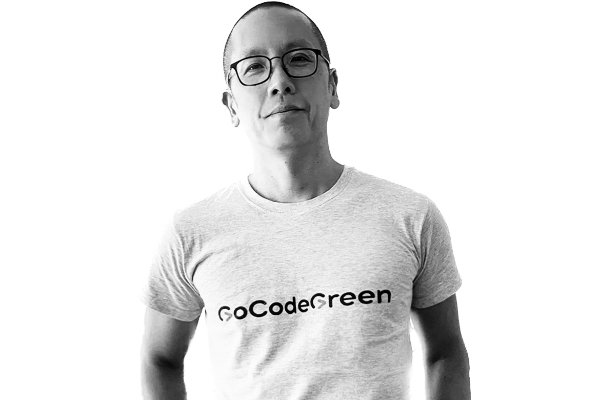GoCodeGreen has taken the complexity of the GHG Protocol ICT Sector Guidance and codified it so the company can assess any software product. It has already completed assessments across websites, mobile apps, full stack applications, AI and data analytics platforms and SaaS solutions.
The company has assessed some really high-performing, carbon-efficient applications, and even those had further room for improvement.
The good news is that the assessments don’t take long and results-based recommendations are usually delivered within a fortnight.
‘On average we are seeing clients are able to gather the data points we need to complete our assessment with half a day’s effort for three or four key roles in their organisation’, Eric reveals. ‘The data entry into our digital assessment takes up to 45 minutes to an hour. Hit ‘submit’ and we do all the work, running our calculations and generating a report that details the carbon emissions, actions and baseline position for the product assessed. We deliver the report to the client after quality checking, and usually within two weeks.’
Benefits to business
Across the 30 software products it has assessed to date, GoCodeGreen has calculated its build-related recommendations have saved the equivalent of just under 20 million kWh of energy.
‘Using 2021 UK electricity pricing, we estimated this to be around £3.75m of savings’, Eric tells us, ‘so it makes complete economic and environmental sense to measure and take action if you are a digital-first business.’
In addition to cost savings, a big benefit for any organisation is the motivational value created by a contribution to the ESG agenda. ‘The feedback from engineering teams has been super positive’, Eric says; ‘they feel engaged and able to contribute. The opportunity to learn new sustainable engineering skills can also be personally rewarding.’
Decarbonising a businesses can add customer value, too; being able to show that action is being taken to reduce the carbon impact of delivering products and services can really make a business stand out at a time when people are increasingly concerned about the impacts of climate change.
Sustainable software development
18 months ago, awareness of sustainable software engineering techniques was almost non-existent in the mainstream – but today Eric is beginning to see real interest and amuch broader sense of awareness.
‘I see eyes light up when I speak at coding events’, he shares; ‘I can feel a growing desire to know more and to take action. But the reality is that much more needs to happen – we must invest in education, measurement and action – and it needs to come from the engineering community as well as from the leaders in a company.’
The beauty of software is that there is no real physical manufacturing process, so engineers are completely free to make changes and improve code performance as and when they choose.
This flexibility creates opportunities for rapid change – at any stage in the development lifecycle.
‘By measuring and baselining we provide the information to allow improvement that can happen at design stage, in build or retrospectively’, Eric explains. ‘Not all actions need to be taken at once; it’s OK to take a balanced view and run improvements over time. By going through the GoCodeGreen process you will know what you are changing, which levers to pull to drive efficiency and set targets and track performance. That allows for actionable and sustainable software development and smart, energy-aware technology choices that will underpin your digital offering.’
Improving the efficiency of data caching, reducing the size of images and removing unnecessary or frivolous features can all help to reduce the carbon footprint of a website, as well as stripping back what Eric describes as 60 years of ‘increasingly lazy’ software development. ‘A generalisation yes, but the term ‘bloatware’ exists for a reason’, he says.
We need to act now
There are few limits to digitalisation and, for Eric, there should be no limits to where change and improvements in the energy demands of software can be effected.
He has set his sights on businesses in areas of the world where the impact of climate change will hit hardest first. Often these are the same areas where access to education, gender inequality and poverty are also serious problems.
‘We want to help bring sustainable software engineering to the next generation, women and girls in IT and coders in those regions and use our knowledge, experience and platform to help them where we can’, Eric says.
The goal is for GoCodeGreen to be part of the challenge in a digital world, to help accelerate action before the window of opportunity closes and we lose the power to make a difference.
‘We have no time’, Eric says. ‘We are at a clear junction where the pathways lead to very different destinations. We need more urgency, and for big organisations to adapt and evolve their decision-making to get to the point of action faster.’
 Play Video about This Rock Might Just Save The World
Play Video about This Rock Might Just Save The World Play Video about Play 2 hours of rock
Play Video about Play 2 hours of rock Play Video about Play 2 hours of brook
Play Video about Play 2 hours of brook Play Video about Play 2 hours of sheep
Play Video about Play 2 hours of sheep















































